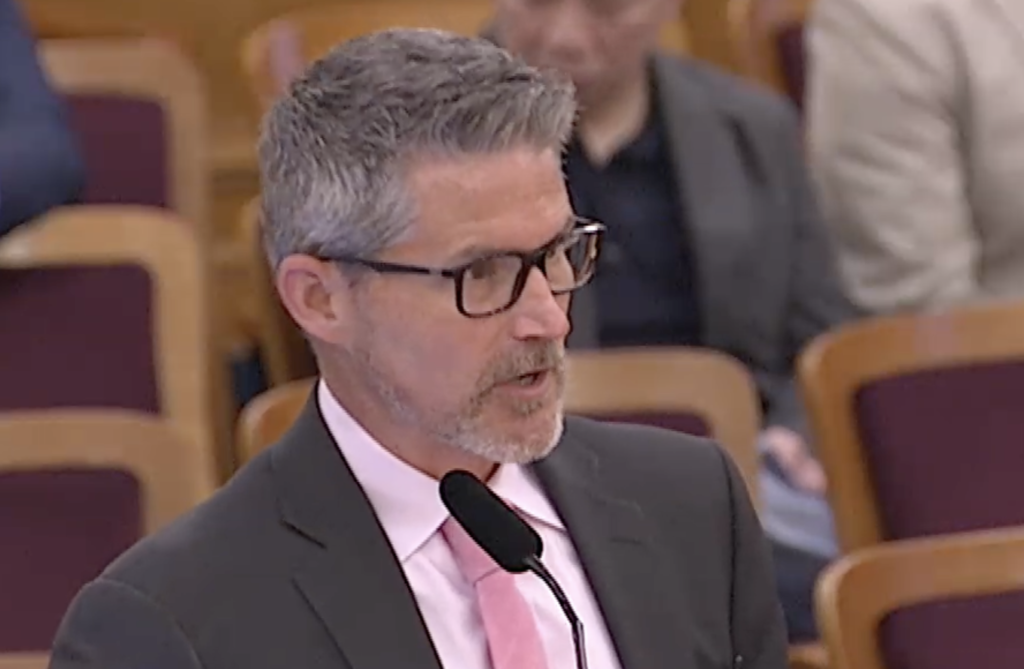The Board of Appeals set a dangerous precedent that could undermine city efforts to preserve affordable rental housing Wednesday when it voted to allow a landlord to remodel a house, eliminating what evidence showed was a basement apartment.
In the process, they turned upside down what should be the de facto city policy: If there’s reason to believe a unit has been rented out as housing, it should be assumed that it’s a rental unit.

In this case, the owners of a house in Potrero Hill want to expand it, making it taller and wider—and in the end, will have a place with two housing units.
But the appellants, who are neighbors, say there was a third unit, a basement apartment, that was rented out in past years, although it wasn’t a legal unit. Even an unpermitted unit counts as rental housing, and under city law, can’t be removed unless it’s replaced.
The problem: The last time renters may have lived in the place was 2018. The entire building is now vacant.
Brett Gladstone, attorney for the neighbors who are appealing the permit, had exactly three minutes to make his case. He noted that he had two sworn affidavits, one from a person who said he lived there in 2018, and one from an upstairs tenant who said there were neighbors in the basement apartment in 2004. Gladstone also presented a real-estate listing from when the building was last sold, describing it as a three-unit building with an unpermitted basement apartment.
Corey Teague, the city’s zoning administrator, told the commissioners that the proving a unit was once rented out requires a lot of specific documentation—like Rent Board files, voter registration files, or utility bills.
But that puts a heavy burden on the city planners evaluating an application, or on any tenant group that wants to protect existing rental housing, since it would require a landlord to register an illegal unit with the Rent Board (rarely happens) or a short-term tenant to register to vote at the site (and the tenants might not be US citizens)—or a tenant who moved out seven years ago to keep old utility bills (assuming that the unit had separate water and power meters).
Gladstone had evidence of a tenant registered to vote at the address—but since the landlord had never created formal separate units, everyone who lived there used the same address.
The Planning Code, unfortunately, provides not description of the evidence that is required to prove a unit was occupied in the past. It’s entirely up to the zoning administrator to make, as Teague said, “case by case decisions.”
So if a landlord doesn’t register a unit, and doesn’t set up separate addresses for the units, and doesn’t install separate utility meters (which are not uncommon practices in small buildings) under the standards adopted by the zoning administrator and now the board, there’s no way to prove that a tenant actually lived there.
John Trasvina, the chair of the board who is a former dean of UC San Francisco law school, said that affidavits sworn under penalty of perjury in front of a notary public, which would be accepted by a judge or jury in most courts in the US, were not valid evidence. Teague said that even if a building has been marketed as having three units, “it doesn’t count.”
J.R. Eppler, a lawyer and commission vice-president, said he wasn’t happy with the situation. “My concerns go to the process,” he said, which doesn’t “cater to cases where people don’t have a long enough tenancy to establish roots … there’s a lot of opportunity for misbehavior.”
Gladstone had three minutes. Teague spoke with the commissioners for about 40 minutes. Some of the commissioners seemed to have reached a conclusion even before public comment.
Paul Melbostat, one of Gladstone’s law partners, served on the Board of Appeals for four years. “I have never seen a hearing anything like this,” he told me.
Now landlords and speculators who be able to demolish existing rent-controlled units have a new set of tools—unless the supes make clear that the burden of proof in the Planning Code is on a landlord to prove there were no tenants, not on the neighbors to prove their were.






